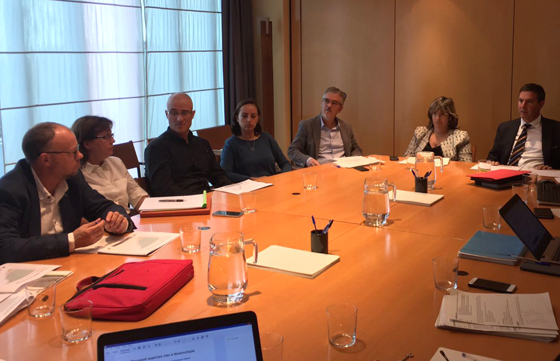The first meeting of the Monitoring Commission of the III Voluntary Agreement between the Generalitat and the Catalan cement industry has established the key aspects that must be developed to improve the protection of the environment and the transition to the Circular Economy. The Commission, held on October 17, considers the use of resources, the use of alternative fuels, the improvement of public information and the optimization of mobility as the main areas of action. A working group, which will have the participation of technical specialists, will address the measures to be undertaken in each of these four areas.
During the start-up session of the Monitoring Committee, the progress made in environmental matters during the validity of the previous two Agreements was assessed. More specifically, during 2016 almost all the expected environmental objectives were achieved, with an investment volume of more than one million euros. On the other hand, it was not possible to reach the planned milestone of 40% of energy substitution for alternative fuels, due both to the decrease in the activity of the sector and to the lack of a wider range of waste to be valued.
The meeting also served to relay the importance it should have, in order to an effective improvement of environmental conditions, the increase in the landfill rate as a deterrent against this poor management of waste. The general director of Environmental Quality, Mercè Rius mentioned that among the main concerns of the society are NOx and dioxin emissions, and demanded an increase in public information on the effects of pollutants. By their side, the representatives of Ciment Català reiterated their concern about the negative consequences that the application of the eleventh final provision and the future Tax Law on economic activities that generate greenhouse gases may have, which, paradoxically, can cause an increase in emissions due to the possible delocalisation of production to more competitive but more polluting factories.

